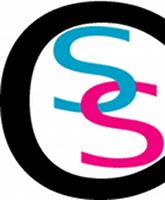University of Bremen
Phosphate rock is a resource of high economic importance and supply risk. Phosphate has an essential role for plant growth and is used in nearly every fertilizer. The supply risk can be referred to the distribution of world’s phosphate. The Sustainable Development Goal "Zero Hunger" is directly related to a sustainable provision of phosphates.
Today, about three-quarters of the world's reserves are located in Morocco and in the areas of Western Sahara annexed by Morocco, and thus in an area of potential political unrest. Although the European Commission in 2014 announced phosphate rock in their list of critical raw materials, phosphates are a barely treated topic in chemistry education. In addition, almost all natural phosphate deposits are contaminated by heavy metals (e.g. cadmium or uranium). So, in recent years increasing attempts were made to close the phosphate cycle to protect the environment and to avoid potential occurring problems.
The presentation describes a three-step educational initiative. First, learners at school explore the importance of phosphates via a digital learning environment created with the Prezi software. The learners then visit a non-formal university laboratory. Students get engaged with qualitative and quantitative analyses on phosphates. The students experience how phosphate can be recovered from wastewater and sludge. Experiments are adapted from real recovery processes currently under development in environmental technology. The learners compare the yields in recovery and decide which process works best. Back in school, the Prezi environment can be used to finally discuss the topic from a societal perspective. The learners are made familiar with the economic and geo-political aspects of this socio-scientific issue. The learning initiative aims at learners from secondary schools, student teachers, and vocational trainees in chemistry related professions.
The evaluation shows that the students like the learning environments, both the digital media and the laboratory program. Feedback indicates that they feel to have learned a lot on phosphate. The approach seems to be suitable for bringing this relevant and important topic into a broader public view. Further insights will also be provided how this topic was also implemented via a digital learning environment in undergraduate general chemistry education in the USA.
Prof. Dr. Ingo Eilks FRSC is professor in chemistry education at the University of Bremen, Germany. His research interests encompass research-based curriculum development, Participatory Action Research, education for sustainable development, or the socio-critical and problem-oriented approach to science teaching. Other domains of research focus science teachers‘ cognition and innovations in higher chemistry education. Up to now, he published more than 600 publications in a broad range from refereed international journals, via book chapters and teacher journals, towards textbooks. Currently he founded the journal Action Research and Innovation in Science Education. He received many awards for his scientific work and teaching, among them the 2014 STEM for Tomorrow School Award, three awards in the UN Decade for Education for Sustainable Development, and the 2017 ACS-CEI award for the Incorporation of Sustainability into Chemistry Education.
